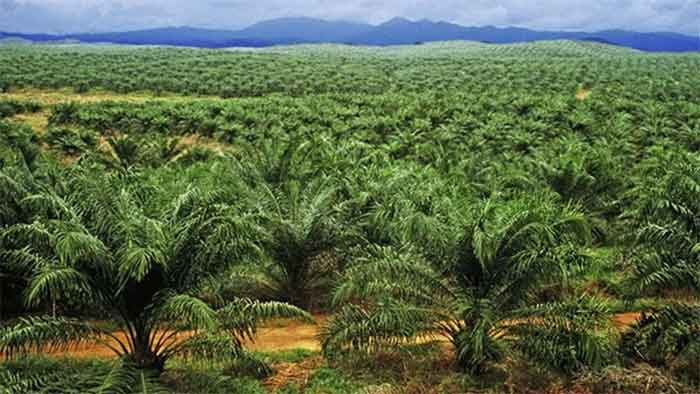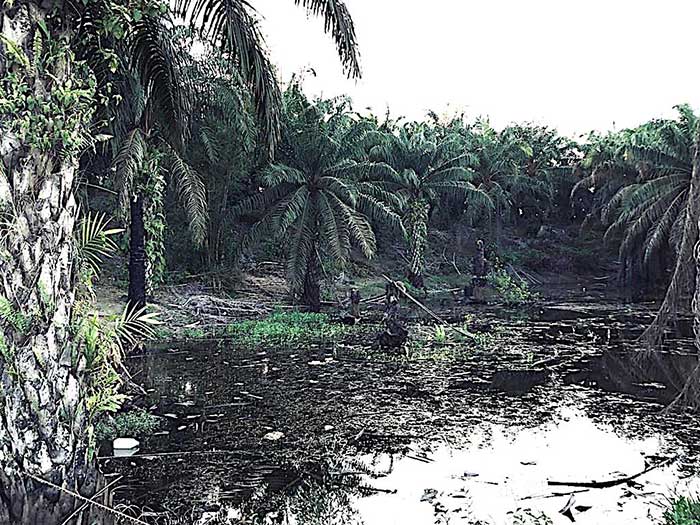
The Indian government first made a big mistake by getting highly dependent on imported palm oil to meet its edible oil needs, despite having a rich and diverse heritage of traditional oilseeds. Instead of correcting this mistake by increasing the production of traditional oilseeds which are rich in nutrition and well-integrated in local cropping patterns, the Indian government is making a second big mistake by taking up a massive plantation of palm oil trees spread over several hundred thousand hectares in biodiversity rich areas like the North-East.
Palm oil trees are highly water-intensive and the water required by them will reduce water availability for a rich diversity of staple food crops of local people and thereby disrupt their food and nutrition security. Promoting palm oil tree monocultures plantations in biodiversity hot spots will be disastrous for biodiversity, for environment and wildlife, for the food needs of human beings as well as birds and animals. Shortage of staple food for many animals will turn them towards feeding on crops of local farmers. Human-animal conflict will increase and in these conditions possibilities of spread of zoonotic diseases can also increase.
Even in the narrow sense of economic benefits, possibilities of economic gains for farmers may not increase as very quick transport of ripe fruit for processing is required and this may be obstructed by various factors. When there is only one main buyer, farmers may not always get a fair deal. It may be more useful for them to cultivate a diversity of crops which can be sold throughout the year. Farmers should be very concerned about the longer-term impact of crop-choice on water and soil if they want to protect sustainable livelihoods. If to earn a little more now, water and soil quality for future is harmed then this cannot be called a wise choice.
When the government gives highest priority to palm oil for increasing edible oil availability, then lesser attention is likely to be given to traditional sources of edible oils like mustard, groundnut, sesame, coconut etc. which are much more beneficial from the point of view of health and nutrition of people. These and several minor oilseeds, apart from providing edible oils, provide a range of much-cherished foods and dishes and in addition have medicinal uses as well. These are well-integrated with the traditional crop-rotations and mixed farming system. Millions of farmers depend on them for their livelihood. These oilseed crops provide nutritious feed for dairy and farm animals too.
India is a country which has often taken pride in its rich diversity of traditional oilseeds. It is surprising that such a well-endowed country has ignored the many-sided perils of rapidly spreading palm oil fruit plantations, as evident from the experience of many countries like Indonesia. These range from ecological havoc and wild life loss to discontent among indigenous people. In India the risks may be all the more enhanced by the government’s focus on the North-East region and Andaman Nicobar Islands for fast spreading of palm oil tree plantations, both areas know for their high sensitivity in ecological as well as anthropological terms.
In fact palm oil plantations had been specifically banned earlier in Andaman and Nicobar Islands and senior forestry experts had clearly warned against introducing such invasive species in biodiversity rich areas.
Even if only the narrow view of somehow increasing edible oil production quickly is taken, crop increases in groundnut, sesame, mustard and other oilseed crops can be obtained within a few months of special enhancement efforts being made, while palm oil trees take some years to mature and yield fruit. In the 90s when special efforts were made to increase oilseeds production, the country almost obtained self-sufficiency in meeting edible oil demand. But then with the advent of the WTO regime which facilitated cheaper imports, the country started moving again towards higher higher dependence on imports.
The cheaper imported oils, on their own and when blended and processed to produce hydrogenated oil started rapidly dominating the market, proving to be a strong disincentive for oilseed farmers who increasingly found themselves on slippery land.
Remedial action was needed in the form of strong incentives and assured fair price for farmers of traditional oilseeds, known for high nutrition, consumer preference, being conducive to local soil conditions, requiring lesser water and fitting in well with established croping patterns. Apart from edible oils, these yield nutritious nuts, green leafy vegetables and are used to make several sweets and snack dishes. The medicinal value of several of these oilseeds is highly valued. Their oilcakes are of great value for dairy development and animal husbandry.
Hence ignoring all this and rushing for palm oil is a highly controversial decision. In a few years if palm oil production dominates, the cheaper oil is likely to further dampen the market and price of traditional oilseeds.
Next to foodgrains, edible oils constitute the most important component of the food basket. India is placed just now at a very important juncture where it may be moving away from its traditional edible oils forever. Once addicted to the cheaper palm oils market conditions may make it exceedingly difficult to return to the traditional oilseeds known for their nutrition and health benefits. This is likely to have very adverse impacts on nutrition, food, health and livelihoods.
Sri Lanka, an early walker from South Asia on the slippery palm oil path, has already regretted the decision and decided to leave it, having suffered much. But in India things happen on a much larger scale and the impacts can be much more devastating. It is highly advisable to reconsider now, before it is too late, and there are many sane voices in India already demanding such reconsideration.
At a wider level, the South Asian region would be well advised to avoid the perilous palm oil path and give much more attention instead to improving the production of tradtional oilseeds and the rural livelihoods based on them. This region should learn from the adverse ecological impacts already seen in countries like Malaysia and Indonesia.
Bharat Dogra is Honorary Convener, Campaign to Save Earth Now. His recent books include Man over Machine, Protecting Earth for Children and India’s Quest for Sustainable Farming and Healthy Food.












































